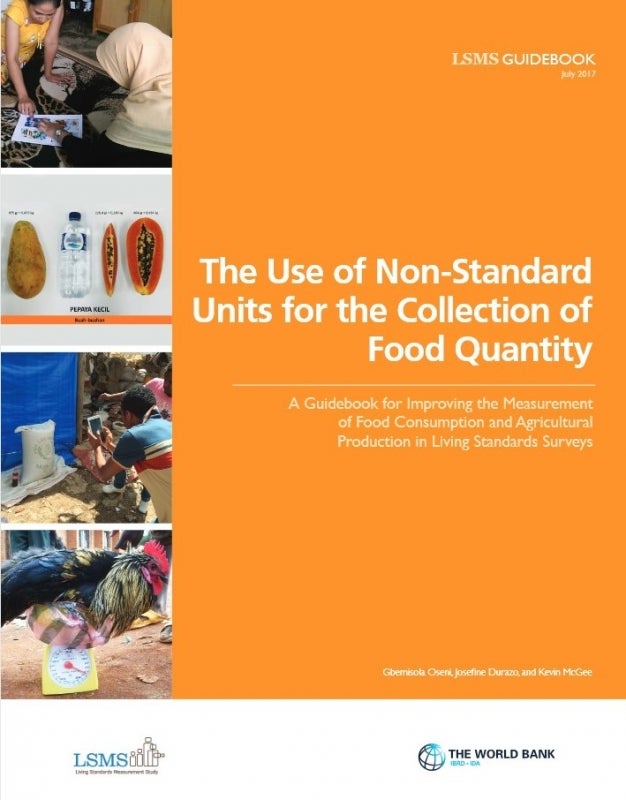
Food consumption and agricultural production are two critical components for monitoring poverty and household well-being in low- and middle-income countries. Accurate measurement of both provides a better contextual understanding and contributes to more effective policy design.
At present, there is no standard methodology for collecting food quantities in national surveys. Often, respondents are required to estimate quantities in standard units (usually metric units), requiring respondents to convert into kilograms, for example, when many respondents are more comfortable reporting their food consumption and production using familiar “local” or “non-standard” units. But how many tomatoes are in one kilogram? How much does a local small tin or basket of maize flour weight? This conversion process is often an uncommon or abstract task for respondents and this added difficulty can introduce measurement error. Allowing respondents to report quantities directly in NSUs places less of a burden on respondents and may ultimately lead to better quality data by improving the accuracy of information provided.
This new Guidebook provides guidance for effectively including non-standard units (NSUs) into data-collection activities — from establishing the list of allowable NSUs to properly collecting conversion factors for the NSUs, with advice on how to incorporate all the components into data collection. An NSU-focused market survey is a critical part of preparing the conversion factors required for effectively using NSU data in analytical work. As such, the bulk of this Guidebook focuses on implementing the market survey and on calculating conversion factors to ensure the highest-quality data when using NSUs.
The Guidebook is the result of collaboration between the World Bank's Living Standards Measurement Study (LSMS) team, the Central Statistical Agency of Ethiopia, the National Bureau of Statistics in Nigeria, the National Statistics Office of Malawi, and the Uganda Bureau of Statistics.
For practical advice on household survey design, visit the LSMS Guidebooks page: http://surveys.worldbank.org/lsms/publications


Join the Conversation